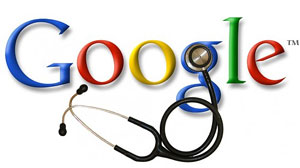Is there a doctor (Google) in the house?
 Most of us immediately want to search online when facing a cancer diagnosis. The internet can be a good source of reliable and helpful information. At the same time, unfortunately, fake medical news and misinformation spreads further than the truth – and can lead to serious consequences.
Most of us immediately want to search online when facing a cancer diagnosis. The internet can be a good source of reliable and helpful information. At the same time, unfortunately, fake medical news and misinformation spreads further than the truth – and can lead to serious consequences.
Best Practices for Internet Research:
- First ask your health care team for trusted websites they recommend for you.
- Visit Bag It’s resource center to find over 150 resources on all cancer topics.
- Websites from these organizations are generally reliable:
- Government agencies (web address ends .gov)
- Major cancer centers (web address often ends .org)
- Medical schools and universities (web address ends .edu)
- Large nonprofit organizations (web address ends .org)
- Look for easy-to-read information written by medical professionals.
- Check more than one source for the same information to verify that the results are the same.
Things to consider when evaluating a website:
- Be critical – is the content objective and free of opinion?
- Who sponsors the site and its content? Who wrote the content and what are their credentials? Who approved it? Reading the “About Us” and “Who We Are” pages can be insightful.
- What is the source of the information presented? Particularly if scientific in nature, was the content written within the last three years and is it supported by the scientific literature?
- Be aware that information on sponsored websites or .com websites may be biased or have a conflict of interest, though the information could still be reliable (such as a drug company’s site)
- Think carefully before sharing personal/health information in online communities. Does the community safeguard your privacy? Refer to the privacy policy, if any.
Remember that the internet is not a substitute for professional medical care and advice. Discuss any information you find with your health care team to help you determine if it is right for you.


Recent Comments